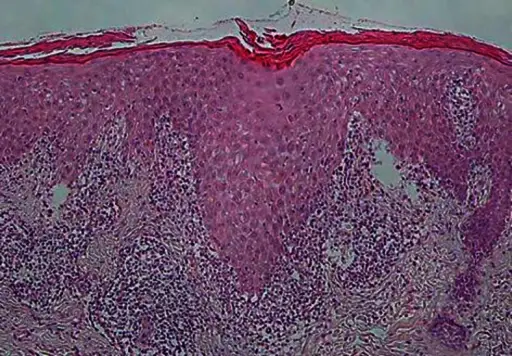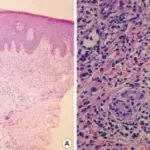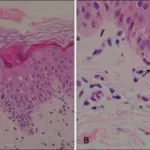Eczematous dermatitis is the pathogenetically different conditions branded by red, oozing, papulovesicular, and crusted lesions early, with persistence, developing into elevated, scaling plaque.
What is the Pathology of Eczematous Dermatitis?
The pathology of eczematous dermatitis is:
-Etiology: The cause of eczematous dermatitis is inherited other factors illness from contact with an external antigen.
-Genes involved: CARD11 gene.
-Pathogenesis: The sequence of events that lead to eczematous dermatitis, antigens at the epidermal surface, are taken by dendritic Langerhans cells, which then migrate via dermal lymphatics to draining lymph nodes.
-Morphology: The morphology associated with eczematous dermatitis shows numerous vesicles appearing at the spot of antigen exposure.
-Histology: The histology associated with eczematous dermatitis shows widened intercellular spaces in the epidermis, ultimately leading to small, fluid-filled vesicles.
How does Eczematous Dermatitis Present?
Patients with eczematous dermatitis are typically more common in females than males present at an age range of 5 years. The symptoms, features, and clinical findings associated with eczematous dermatitis include itchy, edematous, oozing plaques, frequently containing vesicles and bullae.
How is Eczematous Dermatitis Diagnosed?
Eczematous dermatitis is diagnosed through a medical history, physical examination, laboratory studies.
How is Eczematous Dermatitis Treated?
Eczematous dermatitis is treated through medical care with topical steroids.
What is the Prognosis of Eczematous Dermatitis?
The prognosis of eczematous dermatitis is good.



